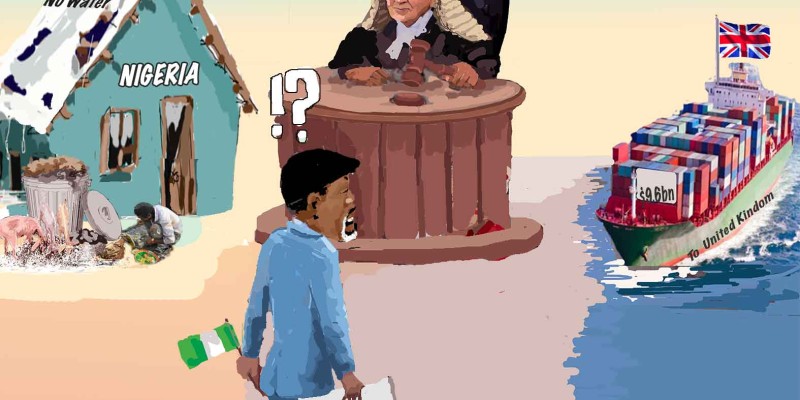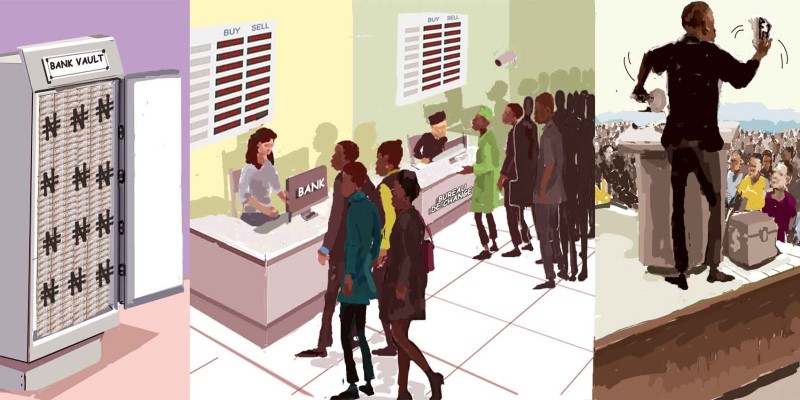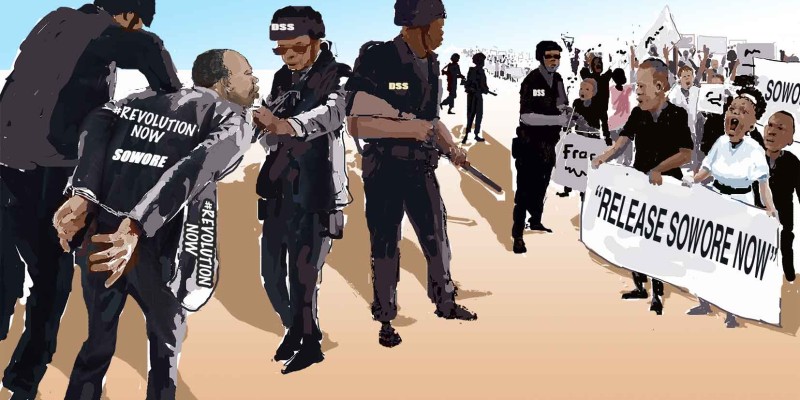In recent times, one of the causes of malfunctions in the Nigerian financial system is the paradox of substantial government deposits in Deposit Money Banks (DMBs) and high government borrowings from the deposit money banks; as at June 13, 2013, the three tiers of government had N2.384tn in the DMBs out of which about 90% are in zero interest bearing Current Accounts. To mop up the liquidity at 14% will cost N301.33bn, which is more than the annual budgets of most states…. This corporate welfare, transfers or subsidy is clearly wasteful and costly. In addition, it undermines and corrupts the public sector and makes public resources to generate inefficient outputs and ineffective outcomes. Improving the market and the state demands the correction of the causes of distortions. The above remarks were made by Alhaji Suleiman Barau, a Deputy Governor in the Central Bank (CBN), to corroborate the same argument recently made by CBN Governor, Lamido Sanusi, in support of the belated decision to increase the cash reserve ratio for government deposits in banks from 12% to 50%.
In similar vein, the Chairman of the House of Representatives Committee on Finance, Dr. Abdul Mumuni Jubril, also observed at a recent public lecture, that “In simple mathematics, when the government goes and borrows all the money available…, private people that want to set up business will have no money to borrow. So we said, government, get out of the domestic market…. But they will not take that, you know why, they are a bunch of lazy people! What they do is to wait for government to borrow, and then give (charge) government double-digit interest rates. This is how they make their money! Mr. Chukwudi Jones Onyereri, Chairman, House Committee on Banking & Currency, also noted that his committee's goal is to see a total withdrawal of public sector funds from the commercial banks!
Thus critical stakeholders in the lower house obviously see the Central Bank policy as a step in the right direction, and also expect that the banks will have to work harder to justify their bountiful annual profits by promoting an enabling environment that would sustain inclusive economic growth. Indeed, CBN’s belated wake from slumber vindicates my over 10-year old consistent advocacy for a restructured payment system. The question, however, is why it took so long for CBN to recognize the folly and attendant poisonous economic impact of government borrowing back its own money! Secondly, will CBN's directive on public sector deposits achieve the expectation of creating a positive enabling economic environment with low single digit interest and inflation rates, and the containment of the causative factor of systemic surplus cash?
Our recommendations were widely published in hundreds of articles in prime newspapers as well as several media interviews to drive home the impact of the apparent fraud in government borrowing back its own funds. Our advocacy was also brought to the attention of major stakeholders such as NLC, TUC and NBA and NACCIMA. Indeed, for how long did this ugly mess go on while our industries were starved of funds and our people wallowed in poverty? In those economies where public officers are accountable, such anti-social management of public funds may count for criminal negligence or at least, a voluntary/forced resignation of the self-indicted from office!
The above notwithstanding, the other question is whether the new CBN directive on public deposits will actually positively redirect our economic trajectory. In reality, the banks can still leverage on the residue of 50% of government deposits to expand credit; besides, the fact that soon after its directive, the CBN, itself, borrowed about N100bn with a plan to mop up another N50bn this week from banks’ vaults, is a clear indication that not only is the problem of excess cash in the system not resolved, but also that government may still be crowding out the real sector by still borrowing back its own funds at a high cost, as it has done for several decades at an average cost of over N300bn annually!
Paradoxically, the CBN's directive on public sector funds will also seriously constrain the apex bank’s ability to achieve its core mandate of price stability; i.e., low cost of funds and low rates of inflation as well as an appropriately priced currency. The emerging reality since Sanusi's announcement is that the reduced cash volumes with the banks have expectedly instigated higher lending rates beyond the already oppressive average of about 20% to the real sector! Consequently, critical sectors like industry and agriculture may actually become more seriously disadvantaged, with an attendant reduction in employment opportunities and the adverse ripple impact on social welfare and security!
Consequently, the CBN may have inadvertently opened the door wider for cheaper imports of consumer goods to meet the needs of an inflation-riddled and industrially shackled economy. Thus, total withdrawal of government funds from banks may eliminate the folly of government borrowing back its own funds, but the collateral impact on cost of funds to the real sector may also be equally industrially and socially destructive. The decades long practice of government borrowing back its own money is clear warning that we can no longer trust our eminent Economic Management Team to redeem our people from the clutches of poverty. It would be a monstrous sin for all true public spirited professionals to keep silent as the Central Bank bountifully swells its reserves with our dollar revenue, while it conversely consciously floods the money market with its liberal creation of increasingly worthless naira, which instigate the poisonous ripple that manifests in inflationary spiral with high cost of funds to the real sector and the irony of government borrowing back its own funds! How long will it take the CBN to recognize that its contradictory and ineffective policies can only be resolved in the absence of perennial excess liquidity? Fortunately, this will be possible with the adoption of dollar certificates for the payment of dollar allocations to constitutional beneficiaries!
SAVE THE NAIRA, SAVE NIGERIANS!!







